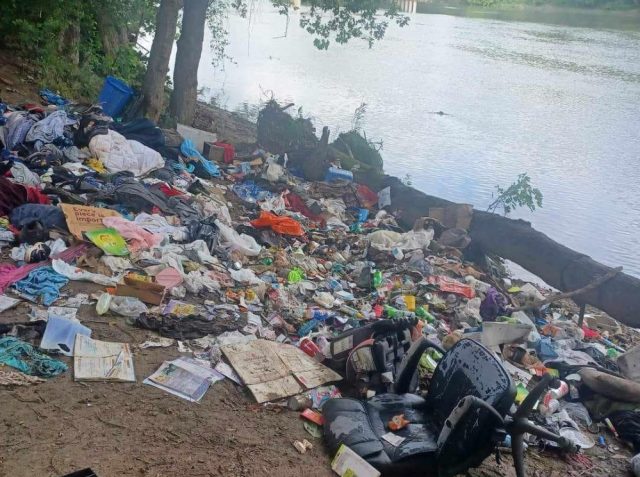
Chillicothe, OH — On July 3, 2024, Chillicothe police intensified efforts to address homelessness within the city’s largest park, Yoctangee Park. Officers responded to reports of homeless camps along the park’s flood-wall, finding areas littered with trash and debris. During the enforcement, many individuals were informed they needed to find new places to stay.
According to the police report (PD-P2403498), officers arrived at the park at 12:51 p.m. and contacted several individuals, warning them for Criminal Trespass on Place of Public Amusement. Those warned were barred from returning to the park. Later that day, officers encountered two individuals who had previously been warned for trespassing.
This enforcement action comes on the heels of a significant U.S. Supreme Court decision last week, which ruled that cities can ban people from sleeping and camping in public places. The 6-3 decision, divided along ideological lines, overturned lower court rulings that deemed such bans as cruel and unusual punishment under the Eighth Amendment when there are no available shelters.
Writing for the majority, Justice Neil Gorsuch acknowledged the complexity of homelessness, stating, “Homelessness is complex. Its causes are many.” However, he argued that federal judges lack the “special competence” to dictate how cities should handle homelessness, emphasizing that these responsibilities lie with the American people and their elected officials.
Justice Sonia Sotomayor dissented, expressing concern that the decision disregards the needs of the most vulnerable. She highlighted that sleep is a biological necessity and that the ruling forces homeless individuals into an “impossible choice — either stay awake or be arrested.”
The Supreme Court’s decision is a significant victory for cities like Grants Pass, Oregon, which brought the case, as well as other municipalities seeking more authority to manage public spaces amidst rising homelessness. Local governments had argued that lower











